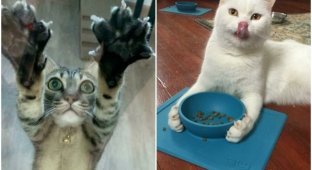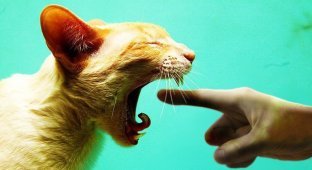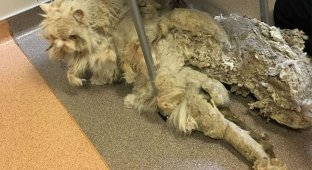While some people go down in history for their intellect, spiritual qualities or talent, others achieve fame for their practicality and enterprise. 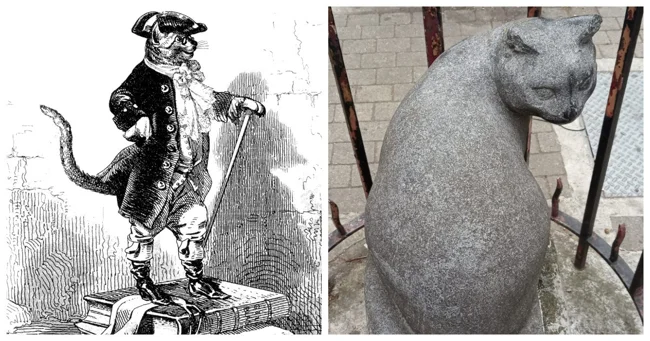
As the hero of this dedication – a monument to the three-time mayor of London. According to legend, the mayor made his fortune by selling an amazing cat. 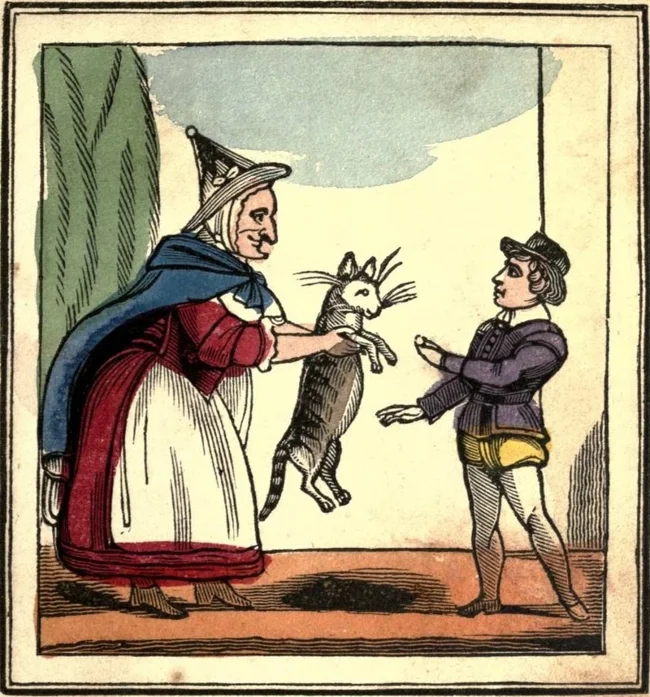
Dick Whittington buys a cat from a woman. Color illustration from a children's book from 1850
Richard Whittington was born in 1350. The poor boy later became a wealthy merchant and three-time Lord Mayor of London. According to legend, he made his fortune thanks to the extraordinary abilities of his pet. 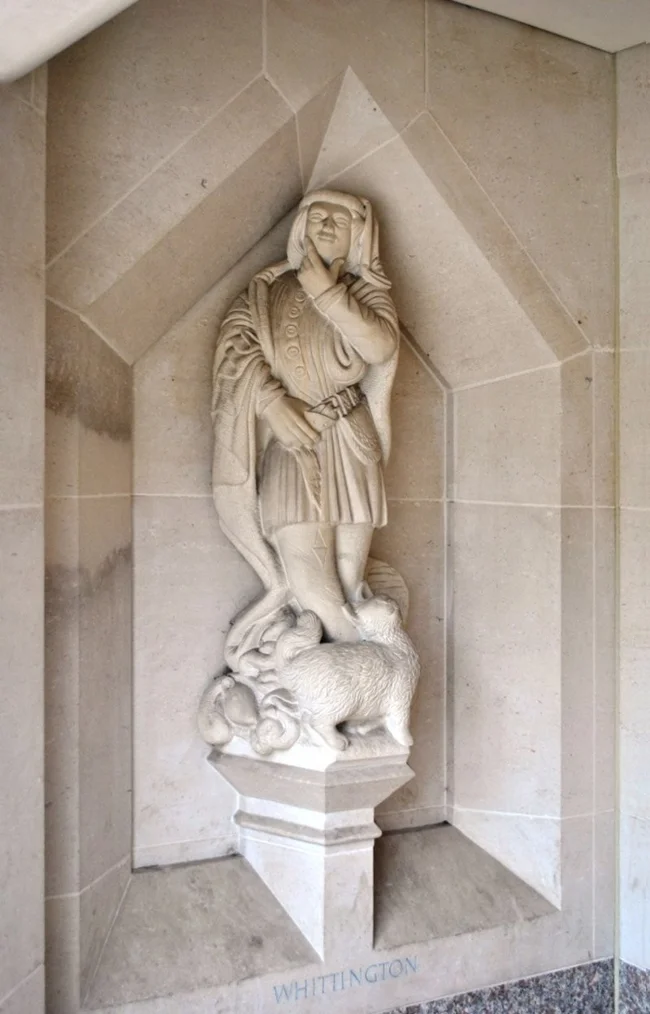
Dick Whittington and his cat, statue at Guildhall
The rags-to-riches story of Dick Whittington and his cat is not just a fairy tale, but part of London folklore. Today, at the foot of Highgate Hill, there is a stone monument to Whittington and his cat, where Dick sat down and heard the famous bells of Bow in East London:
Whittington again! Three times Lord Mayor of London! 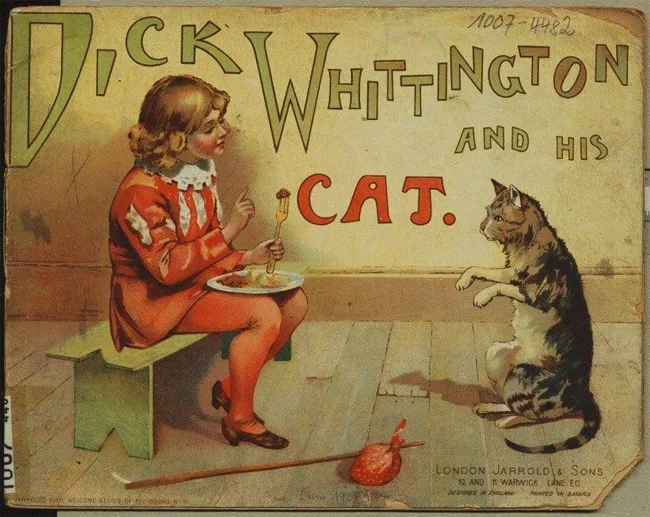
According to this legend, a disillusioned Whittington was about to give up his life in London (the capital turned out to be harsh) and return home to Gloucestershire, when he thought he heard the ringing of bells. The ringing convinced him to stay and promised not just wealth and fame, but the post of mayor. Fortune smiled upon him when he made a fortune by selling his cat to a distant country swarming with rats. The cat was sold to him for the ridiculous sum of one penny, which the boy earned by cleaning shoes. 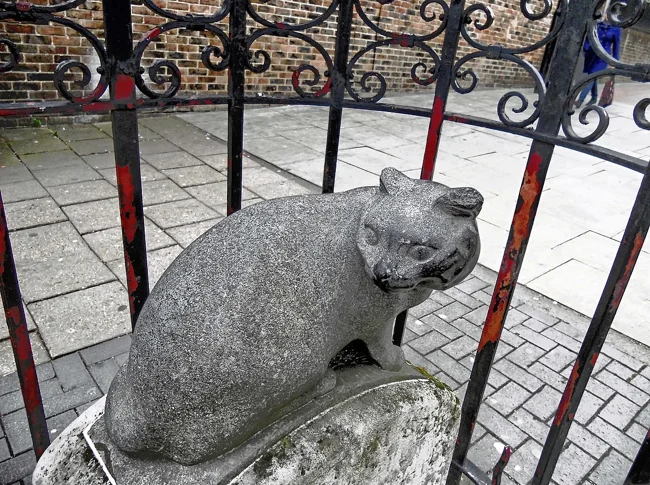
There is an old belief that if the sealed Whittington Stone is ever removed (from where Dick turned back towards London), or if any harm is done to it, great disasters will befall the surrounding areas. 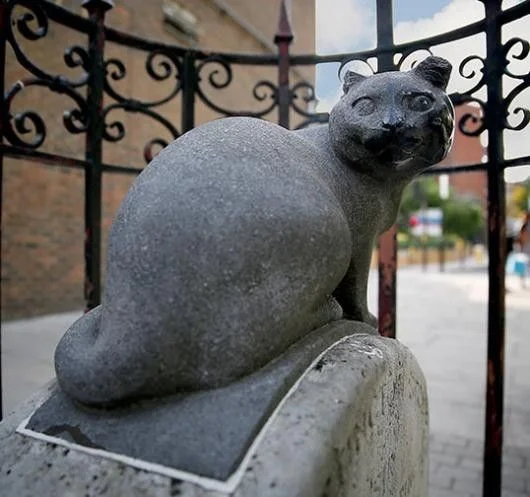
Of course, this myth is most likely based on the fact that the stone is one of the oldest landmarks in Highgate (the granite cat appeared here relatively recently, in 1821), and therefore its destruction is naturally fraught with problems. 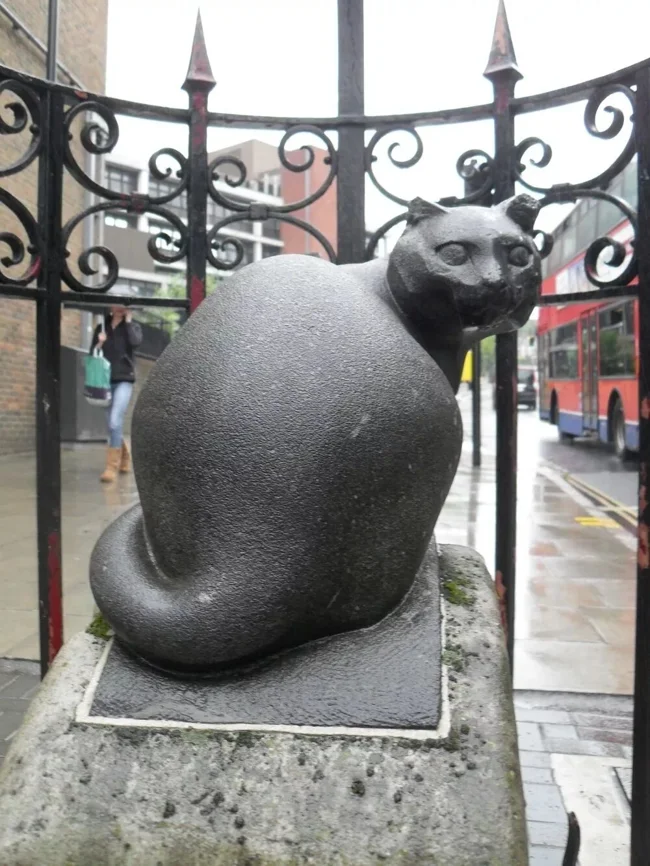
The story of Richard and his cat has found a continuation in a variety of adaptations - ballads, theatrical productions, operas, pantomimes, puppet shows, sculptures, engravings, paintings. 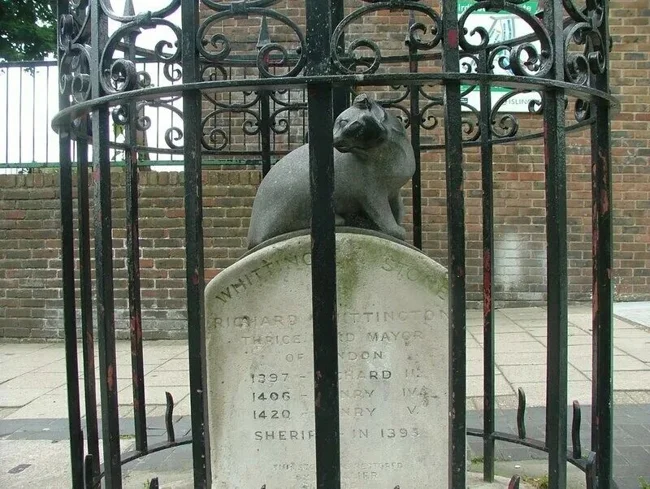
One of the most famous adaptations was the fairy tale "Puss in Boots". The oldest written version is the story Costantino Fortunato (Lucky Costantino) by the Italian author Giovanni Francesco Straparola, and the most popular is the one written in the late seventeenth century by Charles Perrault. 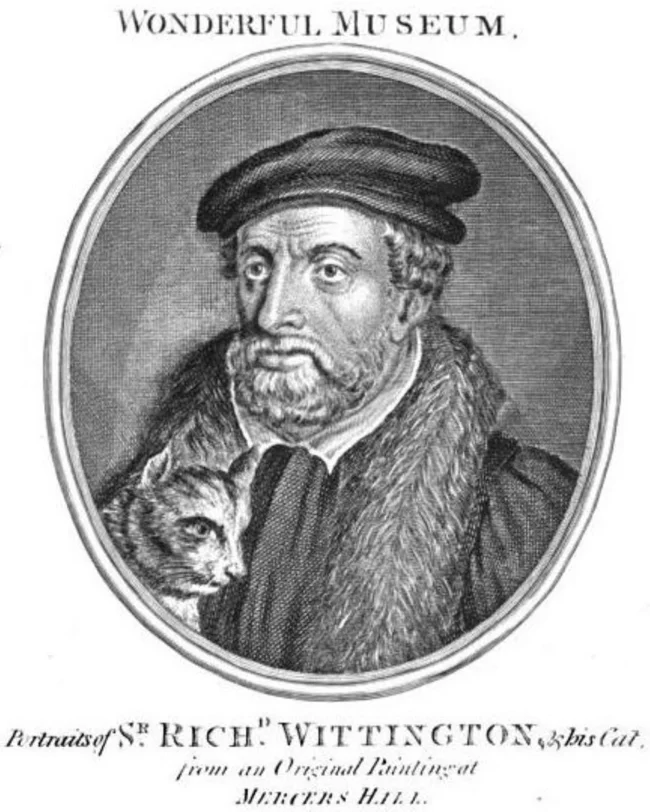
Richard Whittington and His Cat 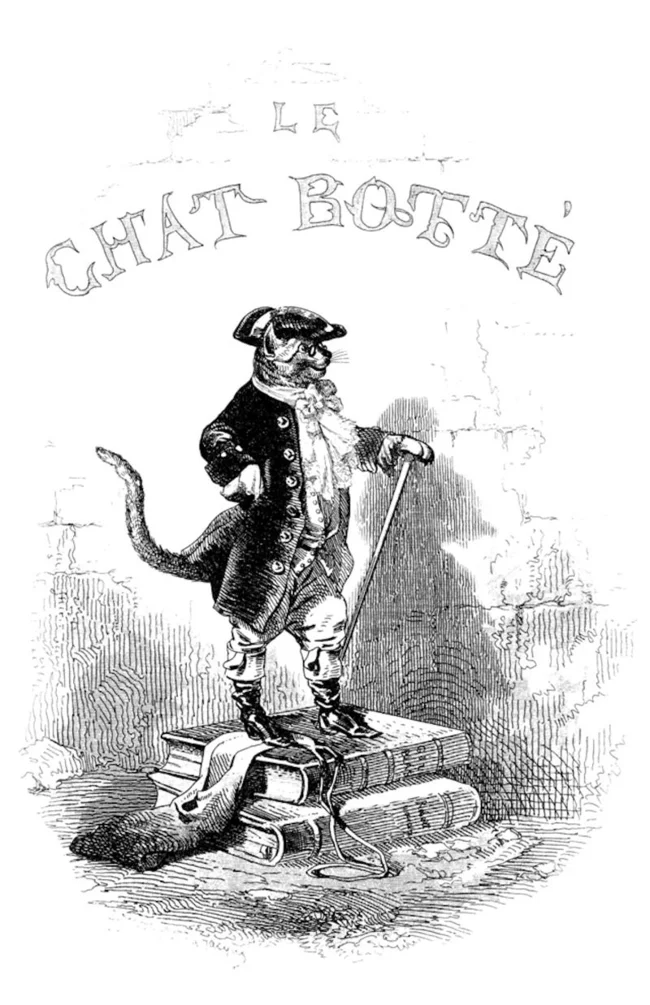
Illustration for the fairy tale "Puss in Boots" from 1843
Add your comment
You might be interested in:















